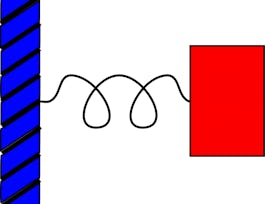As rates of change, derivatives give us information about the shape of a graph. In this course, we will apply the derivative to find linear approximations for single-variable and multi-variable functions. This gives us a straightforward way to estimate functions that may be complicated or difficult to evaluate. We will also use the derivative to locate the maximum and minimum values of a function. These optimization techniques are important for all fields, including the natural sciences and data analysis. The topics in this course lend themselves to many real-world applications, such as machine learning, minimizing costs or maximizing profits.



Calculus through Data & Modeling: Applying Differentiation
This course is part of Differential Calculus through Data and Modeling Specialization

Instructor: Joseph W. Cutrone, PhD
Top Instructor
Sponsored by Coursera for Reliance Family
2,801 already enrolled
(50 reviews)
Skills you'll gain
Details to know

Add to your LinkedIn profile
4 assignments
See how employees at top companies are mastering in-demand skills

Build your subject-matter expertise
- Learn new concepts from industry experts
- Gain a foundational understanding of a subject or tool
- Develop job-relevant skills with hands-on projects
- Earn a shareable career certificate


Earn a career certificate
Add this credential to your LinkedIn profile, resume, or CV
Share it on social media and in your performance review

There are 5 modules in this course
In single variable calculus, the derivative computes the slope of the tangent line where defined. This is then used to create the equation of the tangent line at a point, which can be used as an accurate estimation tool for complicated functions. This theory generalizes to lines in space which are used to create tangent planes. In this module, we work through the formulas and applications of these notions, using our developed theory of derivatives and partial derivatives.
What's included
2 videos2 readings1 assignment
Some of the most important applications of differential calculus are optimization problems in which the goal is to find the optimal (best) solution. For example, problems in marketing, economics, inventory analysis, machine learning, and business are all concerned with finding the best solution. These problems can be reduced to finding the maximum or minimum values of a function using our notions of the derivative.
What's included
2 videos2 readings1 assignment
As models become more complicated, the functions used to describe them do as well. Many functions require more than one input to describe their output. These multivariable functions also contain maximum and minimum values that we seek to find using the tools of calculus. In this module, we will extend our optimization techniques to multivariable functions.
What's included
1 video2 readings1 assignment
In mathematical optimization, the method of Lagrange multipliers is a strategy for finding the local maxima and minima of a function subject to equality constraints. It is named after the mathematician Joseph-Louis Lagrange. In this module, we develop the theory and work through examples of this powerful tool which converts a constrained problem into a form such that the derivative test of an unconstrained problem can still be applied. The relationship between the gradient of the function and gradients of the constraints rather naturally leads to a usually easier reformulation of the original problem.
What's included
1 video2 readings1 assignment
We now put all our theory and practice to use in a real world problem to model the costs associated to a construction project in an effort to find the best possible price point. This project is challenging and answers may vary slightly based on the assumptions you use. Be thoughtful and clear in your report about any assumptions you make along the way.
What's included
1 peer review
Instructor

Offered by
Why people choose Coursera for their career




Learner reviews
50 reviews
- 5 stars
80.39%
- 4 stars
13.72%
- 3 stars
3.92%
- 2 stars
1.96%
- 1 star
0%
Showing 3 of 50
Reviewed on Apr 26, 2022
Excellent course, very challenging and therefore rewarding when you get the answers right. The feedback is great for self-correction when you go wrong.
Reviewed on Dec 24, 2021
Excellent presentation overall with very good explanations and worked examples.
Recommended if you're interested in Math and Logic

Johns Hopkins University

University of Washington

University of Washington

The Hong Kong University of Science and Technology

Open new doors with Coursera Plus
Unlimited access to 10,000+ world-class courses, hands-on projects, and job-ready certificate programs - all included in your subscription
Advance your career with an online degree
Earn a degree from world-class universities - 100% online
Join over 3,400 global companies that choose Coursera for Business
Upskill your employees to excel in the digital economy


